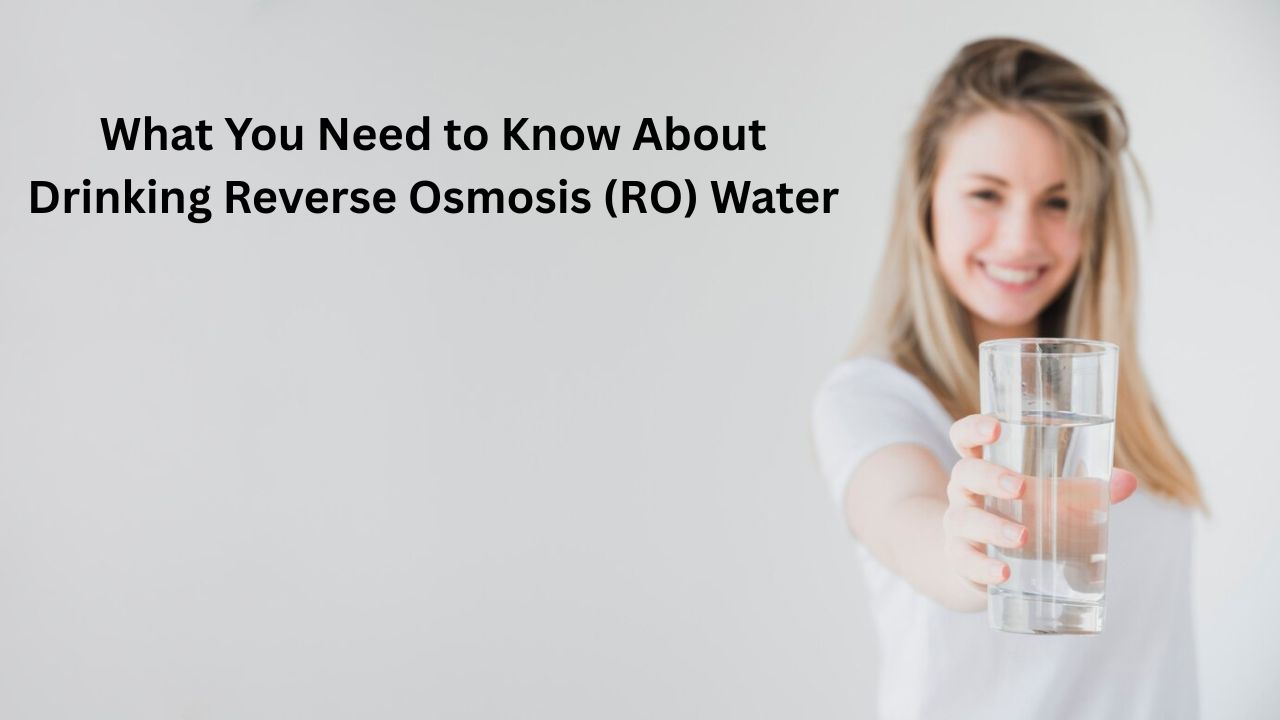If you’re reading this, you’re likely wondering how safe it is to be drinking reverse osmosis (RO) water.
The World Health Organisation says long-term consumption isn’t necessarily good for you, but is this true and in what context?
In this guide, we’ll explain what RO is, why it’s still widely used, and everything you need to know about drinking filtered water.
What Is Reverse Osmosis and Why Is It Used?
Reverse osmosis is a filtration method that uses a semi-permeable membrane to remove contaminants from water, including dissolved salts, bacteria, and chemical impurities. It’s widely used all over the world in household systems, water bottling facilities, and industrial settings.
The process can strip water of nearly everything but H₂O molecules, which is why it is commonly used in areas with poor water quality or heavy contamination.
Whilst this can be great, the high level of purification also removes essential minerals, such as calcium, magnesium, and potassium, leading to what’s often called “pure” or “flat” water.
The Problem with “Pure” Water: Electrolyte Imbalance Explained
Drinking pure, demineralised water may sound like a good thing, but it can disrupt your body’s natural electrolyte balance. Electrolytes like sodium, potassium, and magnesium play critical roles in muscle function, nerve signalling, and hydration.
When you consume too much mineral-free water, especially if you’re sweating heavily or live in a hot, dry climate, it can dilute and flush these vital electrolytes from your system.
This can result in symptoms such as fatigue, dizziness, muscle cramps, and in severe cases, hyponatremia (low blood sodium levels).
How RO Water Affects Hydration and Your Body’s Salt Balance
Think of your bloodstream as a balanced soup; it needs the right concentration of salts to function properly.
When you consume salty foods, your body retains water to maintain this balance. On the flip side, drinking too much demineralised water without replenishing electrolytes has a flushing effect, diluting your blood’s salt levels.
This not only impacts hydration but can also interfere with cellular function, especially during periods of physical exertion or heat exposure.
That’s why old-school remedies like pickle juice or electrolyte drinks are so effective – they quickly restore lost salts and fluids.
Why Re-Mineralising RO Water Matters
To make RO water more suitable for everyday drinking, it’s a good idea to reintroduce essential minerals.
This can be done with re-mineralisation cartridges, mineral drops, or by using a separate filter stage that adds calcium and magnesium back into the water.
Not only does this help maintain electrolyte balance, but it also improves the taste of the water, which many people find too bland when minerals are absent. In fact, this is exactly what many bottled water companies do. After purifying the water, they add minerals back in for both health and flavour benefits.
RO Water in Bottled Water and Daily Consumption Considerations
Most commercial bottled waters that taste crisp and clean are typically purified using reverse osmosis or distillation and then enhanced with a mineral blend.
This process helps ensure consistency in taste and meets consumer preferences for “pure” water. For the average person with a balanced diet and regular multivitamin intake, drinking RO water occasionally or in moderate amounts poses no real harm. But consistently drinking large quantities of unmineralised RO water could increase the risk of electrolyte imbalance over time, particularly in physically active individuals.
Concluding Summary: Is RO Water Safe to Drink Daily?
In short, yes. Reverse osmosis water is generally safe for daily consumption, but moderation and mineral content are key.
Good quality reverse osmosis systems are excellent at producing clean water, they also remove beneficial minerals that your body needs to stay hydrated and healthy. So re-mineralising your RO water helps mitigate these concerns and makes it more palatable.
If you’re eating a well-rounded diet and taking care of your overall health, the occasional glass of RO water won’t do harm. Still, for regular use, consider adding minerals back in or opting for bottled water that’s already been enhanced.
